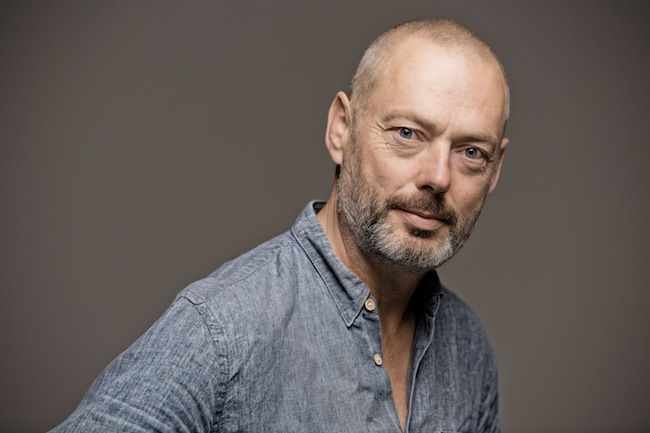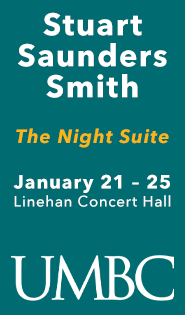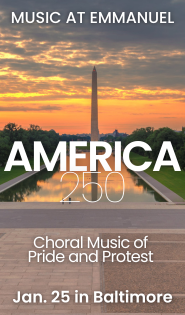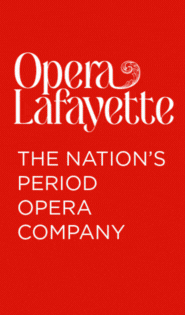Mark Padmore displays sublime artistry at Library of Congress

Mark Padmore performed songs of Beethoven and Schubert Monday night at the Library of Congress. Photo: Marco Borggreve
Mark Padmore is not a superstar, in the best meaning of the phrase. Two years ago, the British tenor drew only a half-filled audience for a local recital that turned out to be one of the year’s best. His recordings, superlative though they are, do not begin to convey the refinement and disarming subtlety of his live performances. The Library of Congress offered another chance to experience this distinctive voice on Monday evening.
The 2014 recital ended with a single encore, the song “Ständchen” from Schubert’s Schwanengesang. That set of songs, grouped together by the composer’s publisher after Schubert’s death, became the focus of this program. Rather than a true cycle, Schwanengesang is a chimera consisting of two longer sets of poems by Ludwig Rellstab and Heinrich Heine, plus a single poem by Johann Gabriel Seidl, believed to be the last from Schubert’s pen.
Padmore made the strongest case possible for the collection’s dramatic unity. The message from the carrier pigeon in the final song, “Die Taubenpost,” as Padmore reminded us in a brief, eloquent comment, is “die Sehnsucht”(longing). Running through Padmore’s interpretation was that sense of yearning for love, so poignant in the thoughts of the dying Schubert, not yet even thirty-two years old.
From the first song, “Liebesbotschaft” (Message of love), Padmore took us through various memories of love haunted by death, caressing each phrase with results both enigmatic and powerful. In “Kriegers Ahnung” (Soldier’s foreboding), the memory of love briefly comforted a soldier surrounded by his dead comrades. Padmore can howl with anguish, as in “Der Atlas,” but his is not a voice characterized by heroic power. Subtlety is more his calling card, as in the gloomy melancholy of “Ständchen” and the fleeting happiness of “Das Fischermädchen” (The fisher maiden).
Andrew West was a steadfast musical partner at the piano. His sound overwhelmed Padmore’s voice too often, a situation that could have been helped by lowering the instrument’s lid to the small peg. West helped establish the mood in the set’s most striking songs, like the ethereal arpeggiations on fully diminished seventh chords in the eerie “Die Stadt,” turning this poem into something like a voyage in the hellish boat of Charon.
Padmore’s recording of the collection’s climactic song “Der Doppelgänger” is memorable but left one prepared for the power of this song in live performance. It is the most sinister song Schubert ever wrote, surpassing the somewhat cartoonish “Erlkönig,” among other candidates. In Heine’s poem the narrator visits the former house of his lost love, only to find his own ghostly double, like a demon possessing the place. The image that Padmore and West created, of Schubert looking at his own love-haunted and spectral self, was powerful and overwhelming.
A memory slip at the start of “Abschied,” requiring Padmore to look over West’s shoulder to remind himself of the words and then restart the song, interrupted the flow but only temporarily. The insistent applause of some audience members after some of the songs was even more distracting, an unusual lack of decorum for the generally learned and silent audience at the Library of Congress.
The theme of longing tied the second half together with a first half of Beethoven songs, centered on the song “Adelaide” and the mini-cycle An die ferne geliebte, both of which Padmore released on disc just last year.
In “Adelaide” the heroic demands at the top of the vocal range strained Padmore’s voice, but he still sang with the phrases melting into one another beautifully. The cycle itself is almost perfectly suited to the strengths of Padmore’s voice. In particular the otherwise ordinary second stanza of “Wo die Berge so blau,” where the singer recites plainly on a single muted note while the piano fills in the melody, was magical.
One particular moment tied the whole evening together, in the cycle’s final song. In the third stanza, Padmore and West came to an almost complete halt, filling the words “you sing what I have sung from deep within, only conscious of longing” with heartfelt tenderness. This laid the groundwork for the song’s triumphant finish, with Padmore’s ecstatic, resounidng repetitions of the final words, reminiscent of the joyous conclusion to the composer’s opera Fidelio and Ninth Symphony.
The series of free concerts at the Library of Congress continues with a recital by fortepianist Kristian Bezuidenhout 8 p.m. October 26. https://www.loc.gov/concerts/kristianbezuidenhout.html






Posted Oct 18, 2016 at 7:08 pm by Laura Youens
I am so sorry I was unable to get tickets for this concert. I have admired Padmore’s voice since I first heard him on Gardiner’s Bach Cantata Pilgrimage.